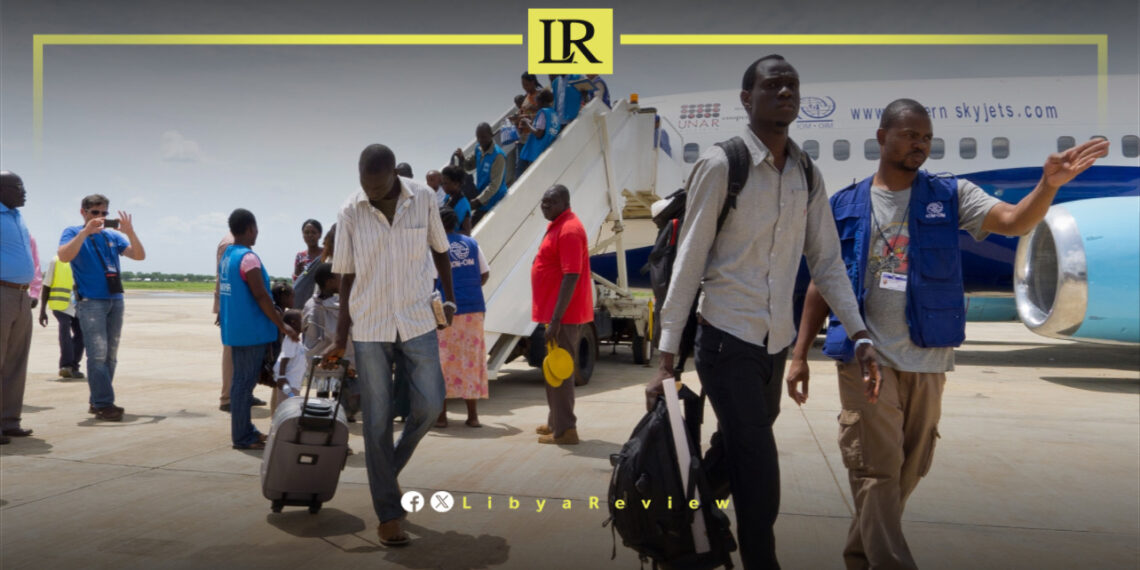On Wednesday, the International Organization for Migration (IOM) successfully facilitated the voluntary repatriation of 166 Nigerian migrants from Libya to Nigeria, marking a significant step in the safe return program for stranded migrants.
This operation, supported by the European Union, helped transport the group from the city of Sabha in southern Libya to Nigeria’s capital, Lagos, over the past week. Among those returned were five families and four unaccompanied children who had been separated from their families, ensuring vulnerable groups received prioritized assistance.
Libya remains a major transit point for migrants attempting to reach Europe from various parts of Africa, the Middle East, and beyond. However, years of political instability and security issues have made the journey perilous, with many migrants finding themselves stranded in Libya without means to proceed or return home.
The IOM’s Voluntary Humanitarian Return (VHR) program offers migrants a safe, supported pathway back to their countries, where they can reintegrate and rebuild their lives.
Through coordination with local authorities and international partners, the IOM’s VHR program assists migrants with essential travel documents, transportation, and initial reintegration support. The EU’s partnership with the IOM in Libya has been instrumental in financing and providing logistical assistance to ensure these repatriations run smoothly, promoting both humanitarian support and migration management in the region.
The return of these 166 Nigerian migrants highlights the ongoing collaboration between the IOM, the EU, and Libyan authorities to address the pressing humanitarian and security challenges facing migrants in Libya.
Thousands remain stranded, often facing difficult conditions with limited access to services. This repatriation initiative offers a dignified option for those seeking to return home safely, easing the burden on Libyan resources and reducing the risks of irregular migration.
For many returning migrants, reintegrating into their communities can pose new challenges as they work to regain stability and rebuild livelihoods.
To support this process, the IOM offers reintegration assistance to help returnees find sustainable employment and access essential services. However, the broader support of the migrants’ home countries is crucial for a successful transition, ensuring they have the resources needed to start anew.


